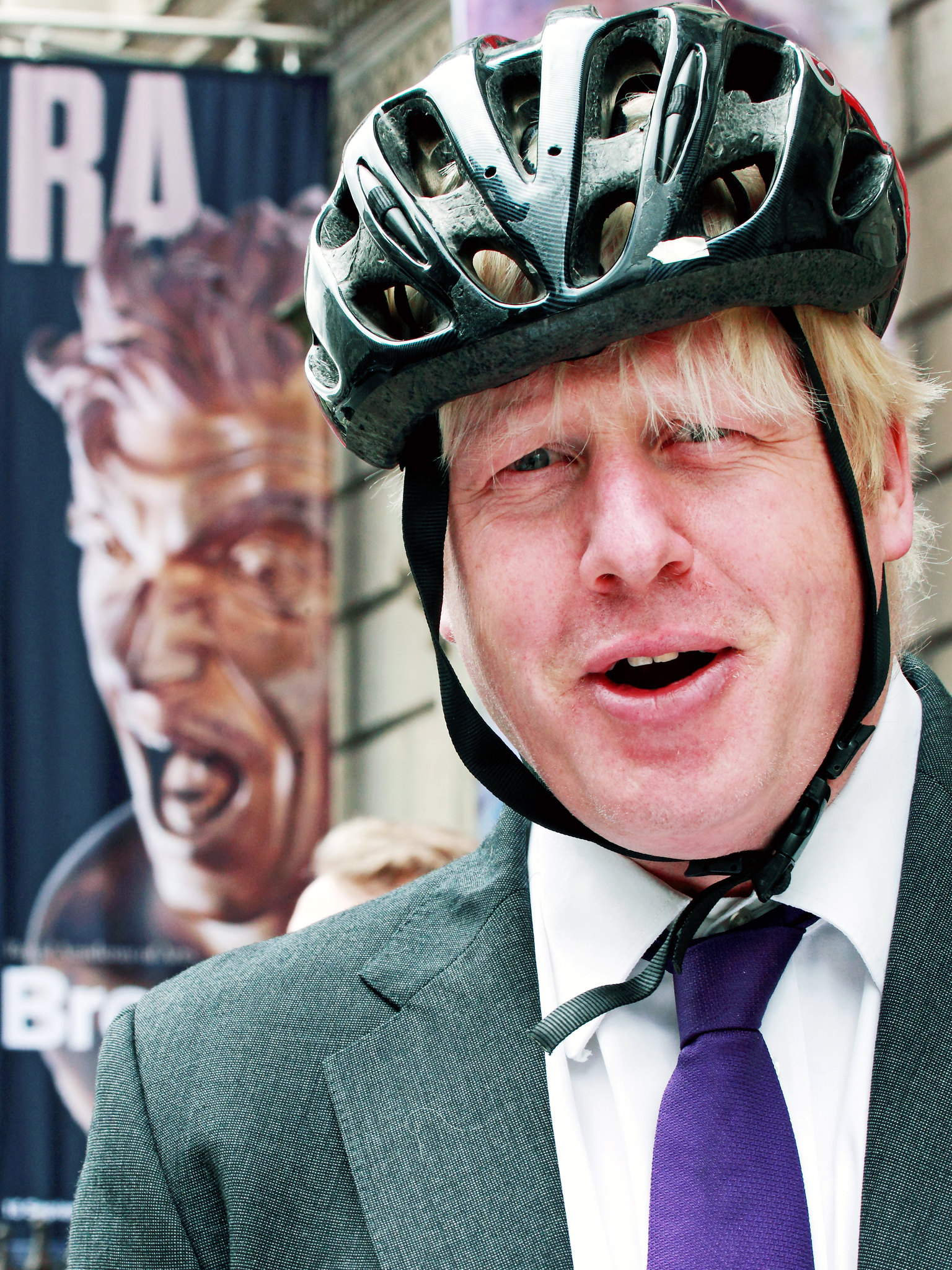Just one hundred days on from Boris Johnson taking office, 1st November will be upon us; day one of his promised post Brexit Britain. His first days in office have been promising, the threatened no confidence motions have failed to materialise and he has thoroughly dispatched the leader of the opposition at the dispatch box – but as this initial bump fades, what can we expect from Johnson’s first one hundred days?
For many, Boris Johnson descending along the mall – temporarily halted by climate protesters – was the completion of a dystopian nightmare. Many were overcome with a sense of foreboding, but just 24 hours into the job, he wroughted Jeremy Corbyn in their first head to head in the House of Commons, reinvigorating the sleepy backbenches of the Conservative party for the first time in years.
With parliament now on recess, his bully pulpit at the dispatch box is temporarily withdrawn; he will instead be forced to turn his attention across the channel; no longer in a blustering and derogatory manner, but as a diplomatic and cunning negotiator.
Brexit
This start has been less impressive. Brussel’s have already responded to Mr Johnson with repeated remarks that his wish for a new deal is utterly ‘unacceptable’, that the deal is not open for negotiation and that he will not be granted the changes he desires.
He is already on the backfoot here, his supporters will expect a renegotiation. However, it is unlikely that one will be forthcoming, teetering Britain towards the brink of a no deal exit – the kind that will not be sanctioned by the United Kingdom’s parliament, or tolerated at the ballot box by the British people.
Despite the bluster, a no deal Brexit is not significantly more likely than it would have been under an alternative prime minister perhaps less likely. Despite his new leader of the house, Jacob Rees-Mogg, stating on numerous occasions that a no deal exit is the default option – due to the legal nature of article 50 and indicative nature of successive no deal votes – the government will almost certainly command the majority to pass something through parliament.
Boris Johnson commands the confidence of his party to a far greater extent than his predecessor. With minor changes to the current agreement, it is likely that he will command enough support from the Conservatives and Labour rebels to successfully pass a withdrawal agreement.
Boris Johnson’s great talent is oratory. He is not a highly skilled technical man and as even his supporters wilfully admit, he will have a good team around him to do that stuff. Although his cabinet appointments – particularly to the Home Office – do not seem to represent a good team, there is a clear commonality of goals, which will likely see the concessions needed for a bill to pass through parliament.
The change here will be around the backstop. Throughout his campaign Boris continually talked up the myriad technical solutions to the Irish border issue, adding in the Nottingham hustings that there are thousands of technological options here.
His ‘team’ will be working to secure one of these options, whilst attempting to remove the bilateral get out of the backstop. The preferred option of Boris and the ERG (Brexiteer Tories in parliament) would be to remove the backstop and enable the UK to unilaterally withdraw from the customs union when it sees fit. It is likely that this minor change is still possible despite the bluster from both Brussels and Westminster, allowing a backstop free agreement to emerge.
In this instance, it is likely that Boris – who commands the ERG’s support where Theresa May didn’t – will successfully pass essentially the same bill through parliament as she failed on three occasions to do.
We will likely see this passed through the commons as soon as parliament rises in September, allowing the preparation for a smooth transition from an EU member to a customs union member, until such a time as the UK negotiate a longer-term relationship and fly the nest.
Throughout this process, we will likely see the United Kingdom align itself ever more closely with the United States, with some possible trade agreements being discussed in the three planned meetings between the new prime minister and the United States’ president before 1st November.
This will likely rekindle the alliance that has been somewhat faltering during the presidency of Donald Trump and came to a head with the resignation of Sir Kim Darroch earlier this month.
Iran Crisis
However, it will likely see the United Kingdom increasingly embroil itself in American conflicts, with the situation in the Strait of Hormuz only likely to deepen under a Johnson premiership.
Johnson has previous experience in this region – as Foreign Secretary he largely contributed to the ongoing imprisonment of British-Iranian Nazanin Zaghari-Ratcliffe over clumsy comments made in parliament. This bumbling style is likely to embroil Britain in further crisis, especially if we align ever more closely to the hawkish American administration.
The recent British flagged oil tanker being taken by Iran was likely a test of British resolve in the region and with a new government, they are likely to act again; it is perhaps this and not Brexit that could define Boris’ initial months in office.
Domestic Agenda
His campaign focused largely on British infrastructure. Full fibre broadband; investment in public services and green technologies; and, a clear wish to attract foreign direct investment is the package for which he clearly wishes to be known.
Akin to Margaret Thatcher’s promises, he wants to throw the shackles off of Britain and boost growth in the private sector and improve services in the public. This is a noble pursuit, that if achieved would undoubtedly make Britain a power on the world stage, taking advantage of the outward looking trade opportunities that Brexit could deliver.
However, given the recess of parliament, these will take a back seat in his first 100 days. Much like Thatcher’s first years in government, his early months in number 10 will be defined by foreign policy. Only after Brexit day will Boris Johnson seriously look to deliver these policies; a time when investment and available treasury pounds for public spending are likely to freeze up.
Instead, we are likely to see Boris’ domestic agenda through the first 100 days look towards developing a package of deregulation and reducing effective corporation tax rates, minimising the loss of investment in the initial months of Brexit; turning Britain into a haven of big business.
Fiscal Policies
This will likely prevent the public investment he promises further down the road by reducing the treasury coughers. He talked much of 14th century Ibn Khaldun on the campaign trail, using lower taxes to increase tax yield; this only works if the current level of taxation is beyond the optimum point. Given recent assessments by the Institute of Fiscal Studies on the cost of Boris Johnson’s tax cuts (£9 billion), we are not beyond that optimum.
Although with parliament on recess he cannot pass such legislation, it is likely that concurrent to his Brexit negotiations, his team will be preparing an omnibus of tax cuts aimed at increasing investment in the United Kingdom come 1st November. This may attract some investment, but is unlikely to benefit the vast majority of Britons, who are likely to feel the pinch when we do leave Europe.
His tax plans, as currently unveiled, are also set to benefit the richest 10 percent in society, according to existing assessments. Given the repeated failure of trickle-down economics to effectively ‘trickle’, his current plans are likely to alienate many of the poorest people further.
Outlook
Boris Johnson’s first 100 days will likely be a mixed bag. His Brexit plan is likely to be successful, we will leave with a deal on October 31st; his alignment to America is likely to cause us significant issues in the Middle East; and his domestic agenda is likely to disproportionately benefit the rich, even if it does alleviate some of the Brexit fallout.
One thing it probably will not be however, is the dystopian nightmare that his critics predict. His buffoonery and bombasticism may cause significant issues; but the cries of fascism over a points-based immigration system and the accusations of homophobia despite repeatedly backing the LGBT+ community is wide of the mark.
He won’t be Britain Trump, nor will he be the outstanding advocate of social issues his supporters want to portray; he will remain the socially liberal fiscally one nation conservative he has always been and post Brexit Britain will be much the same for it.



